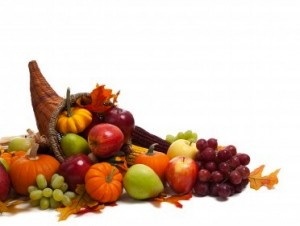
Donald Davis, PhD, a former researcher with the Biochemical Institute at the University of Texas, lead researchers to study the data on commonly grown fruits and vegetables in the US 1950 to 1999. Using data from the USDA, the researchers found that many farm foods are becoming devoid of nutrients and vitamins.
This study serves to validate a previous UK based study done ten years ago. Researcher Anne-Marie Mayer, PhD, looked at crops grown in the UK between the 1930s to the 1980s and found that many had dwindling mineral concentrations.
Davis believes it is our farming practices that are the culprit. As farmers work to create bigger yields of crops more quickly they are preventing fruits and vegetables from being able to fully absorb important minerals from the ground. The decrease has been dramatic. According to data from 1950, broccoli has 130 mg of calcium, a typical piece now only has 48 mg, less than half of what it once was.
Davis’ theory about farming may hold some ground. Alyson Mitchell, PhD, a professor of nutrition science at the University of California, conducted a ten-year study that found the opposite conditions to be equally true. Crops that were grown organically were found to be healthier than their conventionally grown counterparts. An organic tomato had 30 percent more phytochemicals than one grown with standard farming practices. She believes the secret is in how they are grown.
“By avoiding synthetic fertilizers, organic farmers put more stress on plants, and when plants experience stress, they protect themselves by producing phytochemicals,” explains Alyson Mitchell.
Despite the health benefits, many parents skip organic produce because of its increased costs. Farmers that choose organic growing practices cannot grow large crops at the fast rate that conventional farmers can, thus making it necessary for them to charge more in order to earn a living. However, parents can still make selections at the grocery store to get the best fruits and vegetables possible.
- According to Sherry Tanumihardjo, PhD, look for foods that have bold and bright colors. The stronger the color of the fruit or vegetable, the more phytochemicals it has.
- Steve Schwartz, PhD, suggests using food pairings to get the most from your meals. Combining fruits and vegetables of varying colors, such as red tomatoes with green avocados, will help you get more nutrients.
- Donald Davis suggests looked for smaller fruits and vegetables over larger ones. Smaller means the nutrients are more concentrated and better for you. Think blueberries rather than apples.
- Johnny Bowden, PhD, says gently cooking vegetables by steaming or roasting them and help soften cell walls and release more of the available nutrients.
- Preston Andrews, PhD, tells parents to eat fruits and vegetables quickly after they are harvested. These foods begin to lose their nutrients as soon as they are picked. The sooner they can be eaten, the better they will be.
Parents who want to choose organic fruits and vegetables can also use simple shopping tips to buy organic on a budget. Shopping locally, buying in bulk, and growing a small backyard garden are all ways parents can save money on organic produce. – Summer, staff writer
Related Articles:
- Study Finds That Organic Fruit Has More Vitamin C
- Pesticides Used On Foods Linked To ADHD
- Additives To Be Banned From Organic Formula






